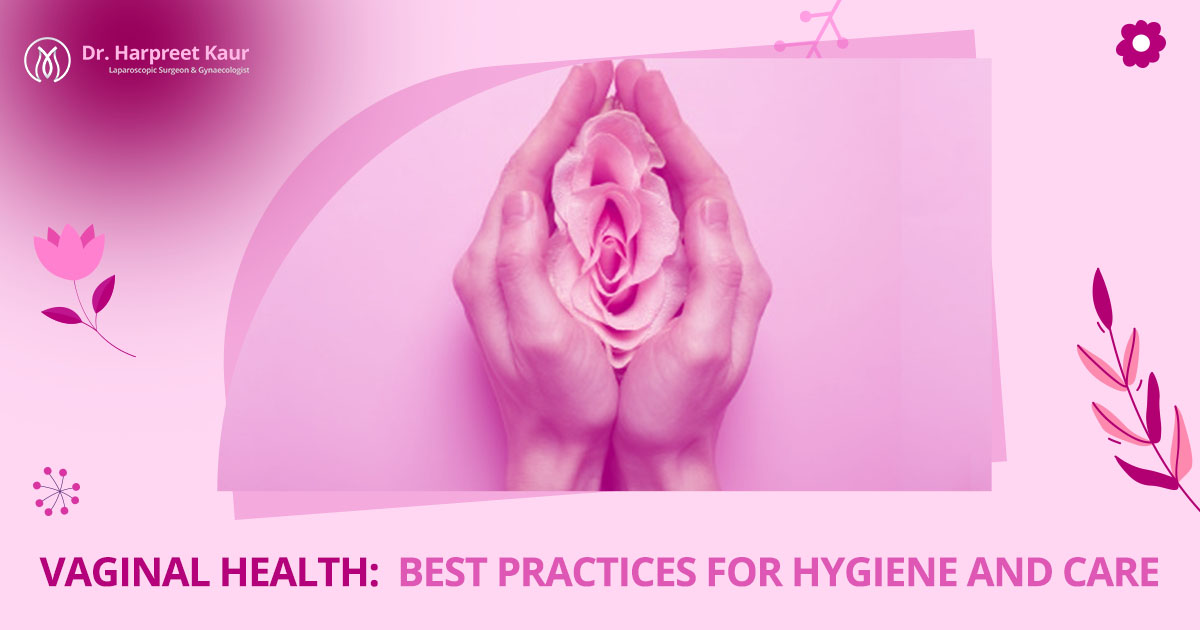Clinic Location
Care n Cure Clinic, Nayapalli, Near Hotel Crown, Bhubaneswar
For Consultation
+91 7008110200
+91 9090910009
Work Hours
Mon - Fri : 05:30 - 07:30
- Home
- About Doctor
- Services
Postnatal care
Gynaecological services
- General Consultatnt
- Adolescent Clinic
- Well Women Clicnic
- Gynaecological Surgeries
- Gallery
- Your Pregnancy
- Training
- Contact
- Feedback
- Blog
- Home
- About Doctor
- Services
Postnatal care
Gynaecological services
- General Consultatnt
- Adolescent Clinic
- Well Women Clicnic
- Gynaecological Surgeries
- Gallery
- Your Pregnancy
- Training
- Contact
- Feedback
- Blog
- Home
- About Doctor
- Services
Postnatal care
Gynaecological services
- General Consultatnt
- Adolescent Clinic
- Well Women Clicnic
- Gynaecological Surgeries
- Gallery
- Your Pregnancy
- Training
- Contact
- Feedback
- Blog
Vaginal Health: Best Practices for Hygiene and Care

Taking care of your vaginal health is essential for overall well-being, yet it is often misunderstood or overlooked. Your vagina is self-cleaning, sensitive, and finely balanced—so it deserves attention and care without overdoing it. In this article, we’ll explore simple yet effective hygiene practices recommended by experts like Dr. Harpreet Kaur to maintain optimal vaginal health.
Understanding Vaginal Health
The vagina is a dynamic ecosystem, home to healthy bacteria known as lactobacilli. These bacteria maintain a slightly acidic pH level, helping to prevent infections by keeping harmful microbes in check. Disruptions to this delicate balance can lead to common issues like yeast infections, bacterial vaginosis, and irritation.
Dr. Harpreet Kaur emphasizes the importance of understanding your own body and recognizing early signs of imbalance, such as unusual discharge, itching, odor, or discomfort.
1. Clean Gently and Naturally
It’s important to understand that the vagina does not require aggressive cleaning. In fact, using harsh soaps or douches can do more harm than good.
- Use lukewarm water to gently cleanse the external genital area (the vulva).
- Opt for fragrance-free, mild soaps if needed, and avoid inserting anything inside the vagina.
- Never use douches or scented feminine washes, as they can disrupt the natural flora.
Keeping it simple is key. Your vagina is self-cleaning, and overwashing can strip it of its protective bacteria.
2. Choose Breathable, Cotton Underwear
What you wear matters. Synthetic fabrics can trap moisture and heat, leading to irritation and infection.
- Choose cotton underwear that allows your skin to breathe.
- Avoid tight-fitting pants and thongs for extended periods.
- Change out of wet clothing or gym wear promptly to prevent bacterial growth.
Dr. Harpreet Kaur suggests rotating underwear daily and washing them with gentle, unscented detergents to avoid chemical irritation.
3. Maintain a Balanced Diet and Hydration
What you eat directly impacts your vaginal health. Nutrient-rich foods support immune function and help maintain a healthy vaginal environment.
- Include probiotics like yogurt and fermented foods in your diet.
- Stay well-hydrated to support natural lubrication.
- Eat plenty of fresh fruits, vegetables, and whole grains for immune support.
A healthy gut often reflects in better vaginal health, reducing the risk of infections and inflammation.
4. Safe Sex Practices Matter
Sexual activity affects your vaginal environment. Taking precautions ensures both safety and health.
- Use condoms to prevent sexually transmitted infections (STIs).
- Avoid using flavored or scented lubricants that can irritate sensitive skin.
- Urinate after sex to reduce the risk of urinary tract infections (UTIs).
Dr. Harpreet Kaur advises regular STI screenings and open communication with your partner for a safer, healthier experience.
5. Be Mindful During Your Period
Menstrual hygiene plays a significant role in maintaining vaginal health.
- Change sanitary products (pads, tampons, menstrual cups) every 4-6 hours.
- Wash your hands before and after changing products.
- Avoid scented pads and tampons.
Keeping your vaginal area clean and dry during your period helps prevent bacterial growth and odor.
6. Know What’s Normal and What’s Not
Vaginas vary from person to person, but understanding what’s normal for you helps identify potential problems early.
- Normal discharge is usually clear or white and may vary with your menstrual cycle.
- Any changes in color, odor, or consistency could be a sign of an infection.
- Persistent itching, burning, or discomfort should be checked by a doctor.
Dr. Harpreet Kaur encourages women to schedule regular gynecological checkups to address concerns early.
7. Avoid Irritants
Certain everyday products can cause irritation or allergic reactions.
- Steer clear of scented toilet paper, wipes, and bubble baths.
- Avoid talcum powders and sprays in the genital area.
- Stick to hypoallergenic laundry detergents for undergarments.
Being selective about what comes into contact with your vulva can prevent rashes and allergic reactions.
8. Manage Stress and Sleep Well
Yes, your mental health is connected to your vaginal health. High stress levels and poor sleep can disrupt hormone balance and immune function.
- Practice stress-reducing activities like yoga or meditation.
- Aim for at least 7–8 hours of quality sleep per night.
- Stay physically active to boost overall wellness.
Balanced hormones and a strong immune system help your vaginal environment thrive.
Conclusion
Maintaining good vaginal health doesn’t require expensive products or complicated routines. It’s all about being gentle, making informed choices, and staying in tune with your body. By following the best practices outlined by experts like Dr. Harpreet Kaur, you can keep your vaginal ecosystem balanced, comfortable, and infection-free. Your body will thank you for it—inside and out.

